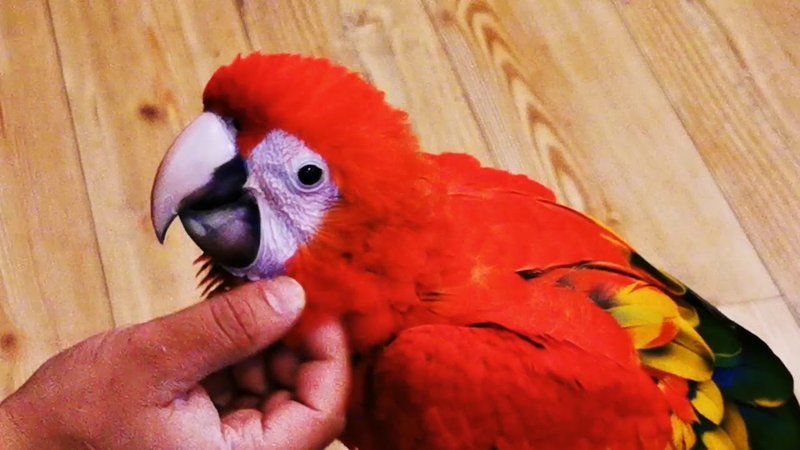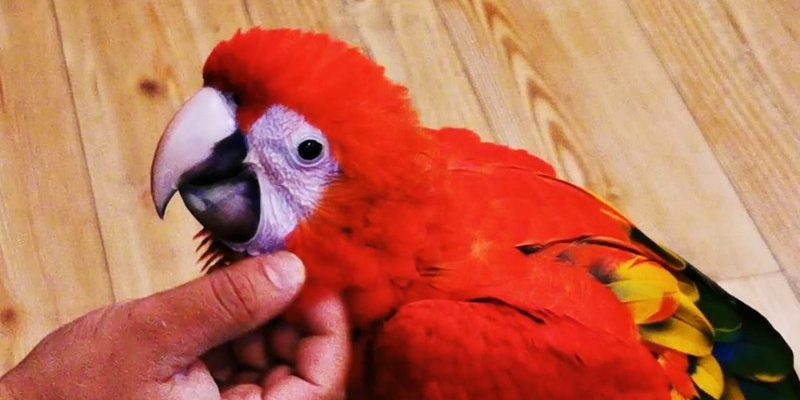
Macaws, with their striking plumage and cheerful chatter, can bring a lot of joy to your home. However, they also require a unique approach when it comes to taming. If you’re new to the world of these beautiful birds, you might feel a bit overwhelmed. But don’t worry—I’ll guide you through the steps to help you and your macaw develop a strong bond. After all, forming that connection is what makes having a pet macaw truly rewarding!
Understanding Your Macaw’s Behavior
Before you dive into taming your macaw, it’s essential to understand their behavior. Macaws are intelligent and social creatures, often displaying a range of emotions. They can be playful, curious, and at times, a little stubborn. Recognizing these behaviors is crucial for effective bonding.
One common trait of macaws is their strong need for social interaction. You might notice that your macaw craves attention and can become quite vocal if they feel ignored. This isn’t just noise—it’s their way of communicating. Understanding their vocalizations can help you respond more effectively. For example, an excited squawk might mean your macaw is happy and ready to play, while a distressed call could indicate that they need comfort.
Another aspect to consider is that macaws can be territorial, especially around their cages. This means that approaching them while they’re in their cage might lead to defensive behavior. Creating a safe and positive environment outside of their cage will encourage your macaw to explore and engage with you.
Creating a Comfortable Environment
To successfully bond with your macaw, start by providing a comfortable and secure environment. Think of it as setting the stage for a great relationship. A spacious cage filled with toys, perches, and places to hide will help your macaw feel at home.
Consider placing their cage in a spot where they can see family activities. Macaws are social and enjoy being a part of the action. Including a variety of toys that stimulate their minds can keep them entertained. Rotate these toys regularly to maintain their interest. When they feel comfortable in their surroundings, it’s easier for them to come out and interact with you.
Creating a routine can also help your macaw feel secure. Schedule times for feeding, play, and social interaction. This predictability will help the bird know when it’s time to expect your attention. In turn, this leads to a stronger bond as your macaw learns to trust you.
Building Trust Through Consistency
Trust is the foundation of any relationship, including the bond with your macaw. To build this trust, consistency is key. Start by spending time near your macaw’s cage daily, talking softly and offering treats. Over time, your macaw will recognize your voice and presence as a source of comfort.
Once your macaw seems more at ease, you can begin training them to step onto your hand. Use a perch or your finger and gently encourage them with treats. If they hesitate, don’t push it—just let them come to you when they’re ready. Patience is vital here.
Remember, every macaw has its own personality. Some may warm up quickly, while others might take a bit longer. Celebrate the small victories. Whether it’s them stepping on your hand or simply singing along with you, each moment you share builds that crucial bond.
Positive Reinforcement Techniques
When it comes to taming and training your macaw, using positive reinforcement techniques is incredibly effective. This approach encourages good behavior without the need for negative reinforcement. Think of it like giving a high-five when someone does a great job—it’s a simple way to boost confidence!
Begin by offering treats whenever your macaw engages in desired behaviors, like stepping up onto your hand or even just being calm and quiet. You could use nuts, seeds, or small bits of fruit as rewards. Make sure the treats are something your bird loves; it’ll motivate them!
Additionally, you can use verbal praise and affection as rewards. They’ll start associating your presence and your voice with positive experiences. This helps them understand what you expect while also strengthening your bond. Over time, your macaw will look forward to your training sessions, making them even more enjoyable for both of you.
Socialization and Interaction
Macaws thrive on social interaction, so the more time you spend with them, the better! Think of it as a friendship—regular hangouts are what make it strong. Start by allowing your macaw to come out of the cage for short periods each day. Create a safe space where they can explore, play, and interact with you.
During this time, engage in activities that stimulate their intelligence. You can introduce toys that require problem-solving or even teaching them basic tricks. Macaws are natural learners, and they enjoy showing off what they can do. Pair these activities with praise and treats to keep them motivated.
Interaction doesn’t always have to be structured, though. Sometimes, just sitting near your macaw and chatting can be beneficial. They’ll appreciate your company, and it helps them get comfortable with you being a constant part of their life.
Dealing with Challenges
Every macaw has its quirks, and challenges can arise during the taming process. You might encounter a few hurdles, like biting or fearfulness. Here’s the thing: it’s important not to react harshly. Instead, identify what might be causing the behavior.
For example, if your macaw is biting out of fear, it could mean they feel overwhelmed. Try giving them space and time to adjust. Never punish your macaw; this can lead to mistrust and fear. Instead, focus on creating positive experiences that help alleviate their anxiety.
If your macaw seems to have trust issues, take a step back. Spend more time building that connection before asking for specific behaviors. Slow and steady wins the race here. And don’t forget to celebrate the small victories, even if they seem minor. Every bit of progress is worth recognizing!
Maintaining the Bond Over Time
Once you’ve established a bond with your macaw, it’s essential to maintain that connection. Like any relationship, it requires ongoing effort. Set aside time each day for interaction, whether it’s training, playing, or simply hanging out.
Consider incorporating new activities to keep things fresh. You might explore outdoor time (safely, of course) or try teaching them new commands. They’ll thrive on the engagement, and it will help deepen your bond even further.
Finally, continue to observe your macaw’s behavior and adjust your approach as needed. They’re unique individuals with their own likes and dislikes, and staying attuned to their needs will ensure a lasting friendship.
In conclusion, taming and bonding with a macaw is a rewarding journey filled with love, patience, and understanding. By creating a comfortable environment, fostering trust, and maintaining regular interaction, you can build a strong relationship with your feathered friend. Remember, it’s all about the journey together—so enjoy every step!

